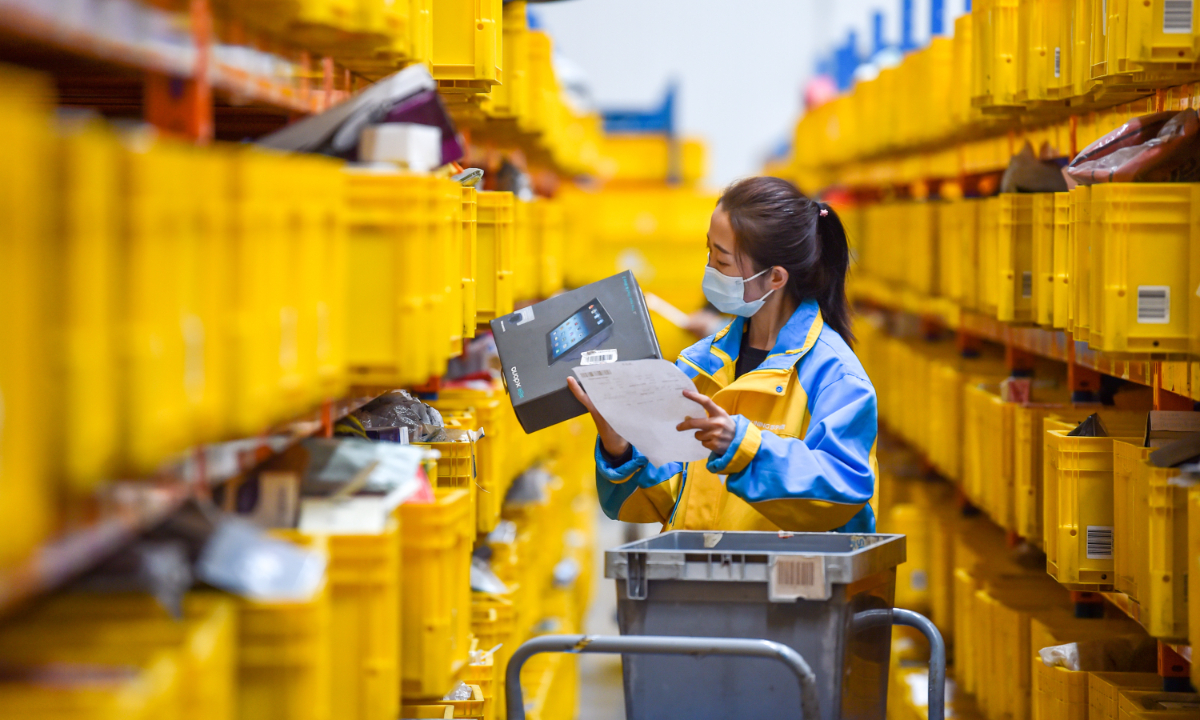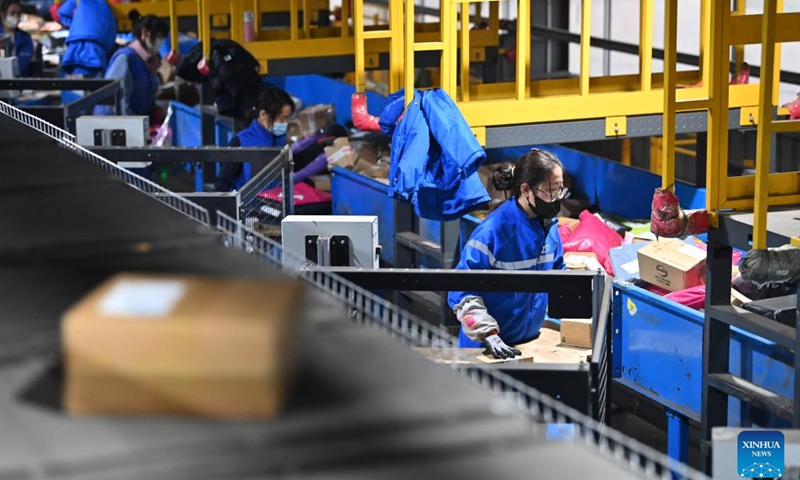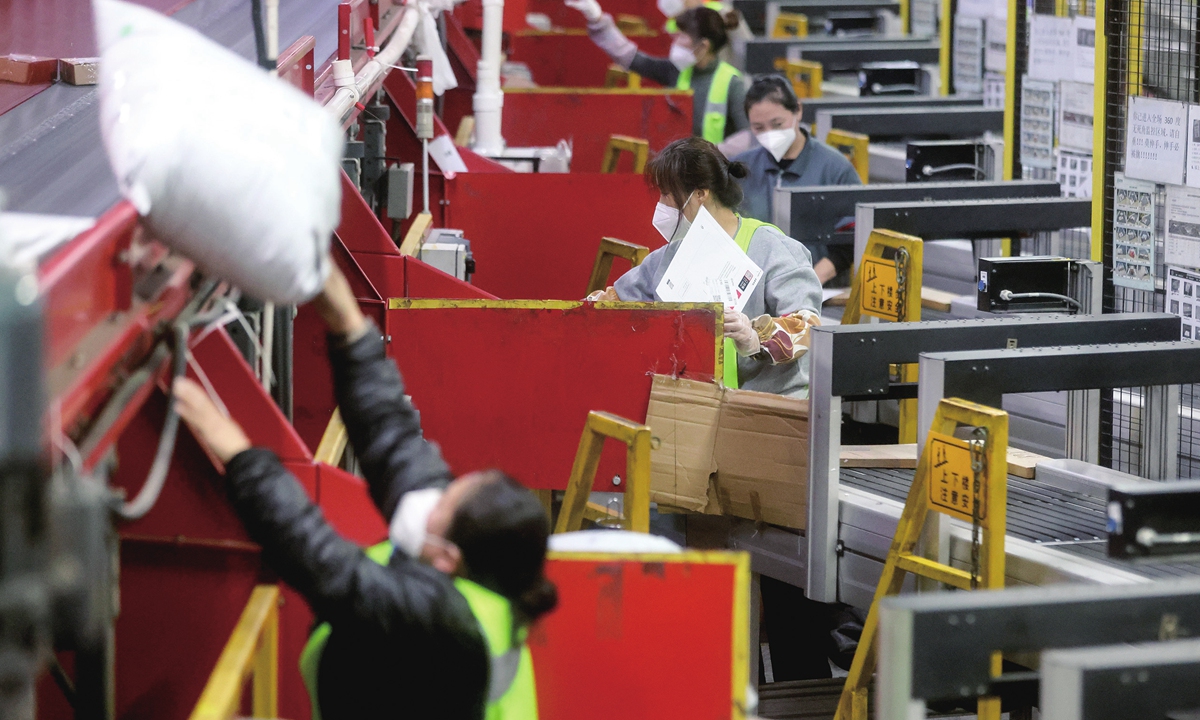
A staff of a delivery center check parcels as the Double 11 shopping festival comes. Photo: VCG
China's Double 11 sales festival, the world's largest shopping carnival, has gotten off to a good start, signifying upbeat consumption sentiment thanks to the nation's stimulus measures to stabilize the economy and expand demand, industry observers said.
Maintaining last year's features - including a lack of fancy galas and eye-catching promotions - this year's Double 11 shopping bonanza arrived in a low-profile way late on Tuesday.
The merchandise value of 155 brands on e-commerce giant Tmall surpassed 100 million yuan ($13.7 million) within minutes after the festival started at 8 pm Tuesday. Within one hour, more than 70,000 brands had achieved the sales value they scored last year.
There were 29 livestreaming rooms that broke the 100 million yuan mark right after the festival started.
On JD.com, another e-commerce giant in China, merchants also reaped considerable turnover as consumers responded to tens of billions of yuan in subsidies and the launch of big brand low-priced goods.
In less than four minutes after the activity started at 8 pm on Tuesday, the transaction value on the subsidy channel exceeded 100 million yuan.
Since Double 11 sales began on JD.com about a week ago, nearly 30 brands have sold more than 1 billion yuan, and the transactions of nearly 15,000 brands have increased by more than five times year-on-year.
The number of individuals and self-employed stores that participated in this year's shopping festival on JD.com that achieved growth on a yearly basis jumped by 11 times compared with the same period last year.
Automobile orders on JD.com went up more than 200 percent year-on-year, among which new-energy vehicle orders tripled.
"This year's Double 11 festival is marked by competition not only among e-commerce giants but also between the online forces and marketplaces that are actively vying for consumer traffic," Zhang Yi, CEO of the iiMedia Research Institute, told the Global Times on Wednesday.
Various platforms are emphasizing that they have the lowest-priced goods.
Multiple signs show that this year's Double 11 festival may become the fiercest in terms of price competition, according to Zhang.
Since it was launched in China in 2009 by Alibaba, the shopping event has been widely embraced by Chinese consumers, although its profile has been somewhat reduced in recent years.
"I still would like to take a look to see if the goods I want are sold at competitive prices, but it's no longer as important to me as it was a few years ago," Wang, a Beijing-based white-collar worker, told the Global Times on Wednesday.
In an unexpected development, neither Tmall nor JD.com announced their gross merchandise volume for last year's Double 11 event, and it's believed that they won't do so this year either.
"But we can still feel the upbeat consumption sentiment based on the sales data released so far," Zhang said, which could mirror the nation's economic resilience.
Consumption has been playing a major role to prop up the economic recovery this year.
Consumption contributed to 83.2 percent of economic expansion in the first three quarters of the year, accounting for 4.4 percentage points of the GDP growth rate, data from the National Bureau of Statistics showed.
"Both the central government and multiple localities have gone all-out to boost consumer confidence and expectations this year," Zhang noted.
At the end of July, Chinese authorities issued 20 measures to boost domestic consumption, including support for expanding real estate and auto sales, underscoring the country's ramped-up efforts to ensure a steady economic recovery amid internal and external downward pressures.


